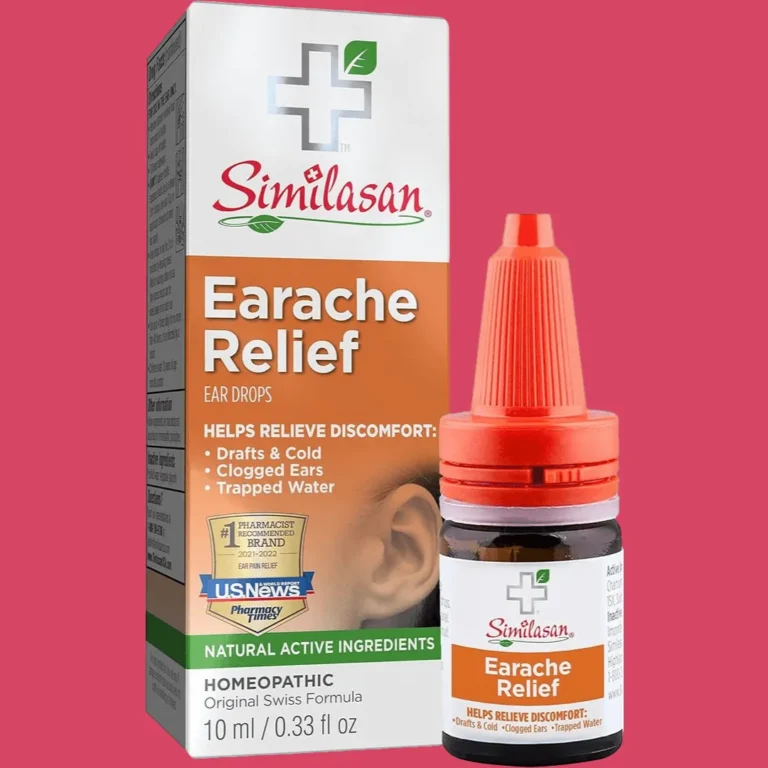Dry Cough Remedies
Persistent and tickling, a dry cough can be more than just an annoyance; it can disrupt your days and haunt your nights.
Understanding the mechanics of coughing and the differences between a dry cough and its mucus-producing counterpart is essential.
This guide offers a comprehensive look into the causes, symptoms, and effective home remedies for managing that stubborn, irritating cough.
A dry cough, often a reflex to clear the throat, can signal underlying health issues or simply be a response to a dusty environment.
Pinpointing the triggers and recognising the signs is pivotal to choosing the right home treatment, whether it be natural remedies, OTC medication, or simple lifestyle changes.
Here, we explore the myriad options available to soothe your throat and silence the cough.
But when does a persistent dry cough warrant medical attention? Alongside preventative tips and home remedies, we will delve into when it’s time to consult a healthcare provider.
From unpacking the connection between acid reflux and chronic coughs to discussing when a cough might bespeak a more serious condition, you’ll find everything you need to manage a dry cough at home effectively.
Table of Contents Dry Cough Remedies
Causes and Symptoms of a Dry Cough
A dry cough, also known as an unproductive cough, is an irritation of the upper airways and does not produce phlegm.
The typical sensation associated with a dry cough is a tickly feeling in the throat, which can be accompanied by an incessant urge to cough in an attempt to clear whatever may feel stuck in your throat.
This type of cough can make breathing more laborious, sometimes leading to increased breathlessness and wheezing.
Unlike wet coughs, where you can hear and feel mucus moving, a dry cough is characterized by a lack of this sound and sensation.
Common triggers of a dry cough include infections, such as a cold or the flu, which inflame the upper airways.
However, exposure to irritants like dust particles, smoke, and fumes can also result in a sudden onset of this coughing type.
When considering treatment, it’s essential to recognize these causes of a dry cough to address the root issue effectively.
Understanding the Cough Reflex
The cough reflex is a protective mechanism of the body that keeps airways clear of mucous or irritants.
Cold air, for example, can cause the tissues of the airways to contract, prompting a cough to reopen the constricted passageways.
When lying down, mucus may irritate the airways more readily, leading to a bout of dry coughing.
Furthermore, persistent coughs following an infection can linger long after other symptoms are gone, often resolving on their own without significant health risks.
Certain foods, especially those that are high in fat or acidity, may induce an acidic response if they reflux back into the esophagus, subsequently causing a dry cough.
Environmental irritants, including smoke, pollen, and strong fragrances, can also be cough-inducing culprits by initiating the cough reflex that prolongs recovery.
To alleviate such irritation, measures such as improving air quality with purifiers and maintaining proper humidity with humidifiers can be beneficial.
Differentiating Between Dry and Wet Coughs
Differentiating between a dry and wet cough is crucial for attaining the appropriate treatment.
Wet coughs usually come with a noticeable sound of mucus being expectorated, which is absent in dry coughs.
While dry coughs result from irritation and swelling in the airways, wet coughs indicate the presence of mucus in the lower respiratory tract.
Infections that affect the upper respiratory system often lead to dry coughing, while lower respiratory tract infections can produce a wet cough.
Common Causes of Dry Coughs
Dry coughs can have various origins, including viral infections like COVID-19, which often presents with a dry cough alongside fever and fatigue.
Exposure to irritants, asthma, GERD, and being on certain medications, like ACE inhibitors, are also known to trigger persistent dry coughs.
Moreover, environmental factors such as poor indoor air quality that contains dust, pollen, and other allergens can provoke or exacerbate a dry cough.
Therefore, maintaining a clean and well-ventilated environment can help in minimizing the triggers for dry coughs.
Symptoms and Signs of a Dry Cough
The absence of mucus or phlegm is a clear sign of a dry cough.
An ongoing dry cough related to COVID-19 may last for about three weeks.
Medical attention should be sought if a cough persists over two months, progressively worsens, or is accompanied by other troubling symptoms.
In the meantime, home remedies such as using humidifiers to add moisture to the air or gargling with saltwater can provide some relief.
It’s important to remember that persisting symptoms should be evaluated by a healthcare provider to rule out any serious conditions and to receive appropriate medical treatment.
Remedies for a Dry Cough
When dealing with a dry cough, a combination of home remedies and over-the-counter (OTC) medications can offer relief.
Kitchen staples like raw honey or garlic have been recognized for their soothing effects.
Specifically, honey’s viscous texture can coat and calm an irritated throat, while garlic has natural antibacterial properties.
Home Remedies for Soothing a Dry Cough
For immediate comfort at home, a humidifier can reintroduce moisture into dry indoor air, providing relief for your respiratory passages.
Additionally, staying adequately hydrated and consuming warm liquids like herbal teas and soups can help alleviate the symptoms of a dry cough.
For those disturbed by coughing at night, elevating the head while sleeping can lessen cough-inducing postnasal drip and reduce acid reflux symptoms.
Over-the-Counter Cough Medicines for Dry Cough Relief
When turning to OTC options, dextromethorphan is a widely used cough suppressant that can help reduce the frequency and intensity of dry coughs.
It’s important to select cough medicines judiciously, as some formulations may include unnecessary decongestants.
Consultation with a healthcare provider can guide you to the best medication for your symptoms.
Using Cough Drops to Relieve a Dry Cough
Cough drops, often containing menthol, provide a cooling sensation and can ease throat discomfort associated with a dry cough.
However, caution is advised to avoid over-reliance on them.
Specific guidelines recommend not giving cough drops to very young children, and always following proper dosing instructions.
Natural Remedies for Treating a Dry Cough
Natural remedies have long been employed to treat coughs.
Ginger, with its bold, anti-inflammatory properties and ability to bolster the immune system, can be used in teas or as a dietary supplement.
Herbal teas, especially those with honey, are another gentle option for symptom relief.
The Role of Hot Water and Warm Beverages in Soothing a Dry Cough
Hot water and warm beverages can be particularly soothing for a dry cough.
Honey added to hot tea is a time-tested remedy that not only helps to soothe the throat but also keeps it moist.
The warmth aids in calming cough reflexes and decreasing throat irritation.
The Benefits of Honey for Children with a Dry Cough
For children, honey is a favored option.
It is safer than many OTC cough suppressants for children over one year old and can reduce nocturnal coughing, aiding in better sleep.
However, honey should never be given to infants under the age of one due to the risk of botulism.
Using a Cool-Mist Humidifier to Moisturize the Air and Alleviate a Dry Cough
A cool-mist humidifier adds much-needed moisture to the air, lessening throat dryness and irritation.
Utilizing a humidifier is particularly beneficial during dry winters or in arid climates.
Adding certain essential oils like eucalyptus may provide additional respiratory benefits, but always maintain the cleanliness of your humidifier to prevent the growth of mold or bacteria.
Avoiding Triggers and Irritants to Prevent or Reduce Dry Coughs
Finally, avoiding triggers is critical.
Steer clear of pollutants, dust, and strong fragrances, which can exacerbate a dry cough.
Being proactive in managing acid reflux and allergies can also help to prevent throat irritation that leads to persistent coughing.
Incorporating these varied approaches can help manage and ultimately alleviate the symptoms associated with a dry cough.
Remember to consult with healthcare professionals when necessary to ensure a proper treatment plan.
Chronic Dry Coughs and When to Seek Medical Help
A cough that lingers for eight weeks or more is generally considered chronic and affects as many as 20% of adults.
While instances of dry coughs are usually the result of short-lived viral infections, such as the common cold, they typically resolve within a few weeks.
However, if you find your dry cough persisting for over three weeks or steadily worsening, it is advisable to seek medical consultation.
This is particularly pertinent for individuals who smoke, as the habit is a predominant factor in chronic coughs and quitting can significantly diminish symptoms.
Importantly, a persistent dry cough can be indicative of more serious health conditions, underscoring the significance of a medical evaluation for an accurate diagnosis and effective treatment plan.
Identifying Chronic Dry Coughs and Their Underlying Causes
A multitude of underlying causes can be responsible for a chronic dry cough.
Asthma, GERD (gastroesophageal reflux disease), and chronic lung diseases are among the more common culprits.
A persistent dry cough that outlives the 8-week mark necessitates medical attention to preempt potential complications.
Promptly consult a doctor if your dry cough is accompanied by alarming symptoms such as coughing up blood.
Understanding that chronic dry coughs may stem from infections, irritants, or environmental factors like pollutants, is pivotal.
Treating a persistent dry cough effectively requires addressing the root cause—whether it’s managing acid reflux, eliminating smoking, or soothing the airways with a humidifier.
The Connection Between Acid Reflux and Chronic Dry Coughs
Acid reflux, specifically GERD, can manifest as a chronic dry cough in affected individuals, impacting both children and adults.
When stomach acid makes its way into the esophagus, it often irritates the throat, leading to a relentless dry cough.
Addressing GERD through dietary adjustments—such as avoiding spicy and acidic foods—and proper medications may provide relief from coughing.
Often a chronic dry cough resulting from acid reflux pairs with other discomforting symptoms, including heartburn, a sore throat, and chest pain.
Mitigating the underlying GERD with lifestyle modifications and medicines can pave the way for resolving the associated dry cough.
Understanding Gastroesophageal Reflux Disease (GERD) and Its Impact on Coughing
GERD transpires when stomach acid inappropriately leaks back up into the esophagus—that’s the tube connecting your mouth and stomach—resulting in symptoms such as a chronic dry cough for up to 40% of those who suffer from the condition.
It’s notable that as many as three-quarters of GERD-afflicted individuals do not experience hallmark gastrointestinal symptoms like heartburn, complicating diagnosis.
Measures to manage GERD symptoms, and thus alleviate coughing, include lifestyle changes: eating smaller, less acidic meals, maintaining a healthy weight, and avoiding tobacco.
A range of medications, from antacids to proton pump inhibitors, is available to control the acid reflux exacerbating the cough.
Dietary tweaks coupled with sleeping position adjustments may also curb the dry cough affiliated with GERD.
Seeking Medical Evaluation and Treatment for Persistent Dry Coughs
It’s vital to consider a persistent dry cough as a possible indicator of more serious conditions, such as tuberculosis, pneumonia, or even certain cancers.
Should such a cough accompany symptoms like unexplained weight loss, persistent fatigue, and night sweats, an immediate medical consultation is paramount.
Professional healthcare advice is imperative if a dry cough is also coupled with chest pain, difficulty breathing, or fever.
While rare, chronic dry coughs could signal severe illnesses like pulmonary fibrosis or lung cancer, which necessitate a thorough medical examination.
Overall, chronic dry cough is a symptom that warrants attention and proper medical care to determine the underlying cause and ensure appropriate treatment.
Other Types of Coughs and Related Home Treatments
Chronic coughs can originate from an array of sources, with postnasal drip being a frequent cause, particularly in those experiencing allergies or the aftermath of a common cold.
Also known as upper airway cough syndrome, this condition triggers a constant urge to clear the throat due to mucus trails extending from the nasal passages into the throat.
To mitigate the discomfort from such coughs, hot steam inhalation emerges as a beneficial approach.
Engaging in a steamy shower or utilizing a vaporizer can introduce moisture into the respiratory system, alleviating the dry throat and minimizing cough outbursts.
Additionally, integrating an environment free from smoke—both cigarette smoke and secondhand smoke—can be remarkably helpful, especially for individuals grappling with chronic obstructive pulmonary disease (COPD).
For those seeking natural avenues for relief, several home remedies have stood the test of time.
Honey, celebrated for its soothing properties, can act as a natural cough suppressant.
Humidifiers maintain the air’s moisture levels, aiding in reducing cough severity.
Steam treatments are valuable for their ability to loosen mucus, while substances like menthol help in opening the nasal passages.
Herbal mixtures, such as syrup concoctions containing thyme and ivy leaf extract, offer a plant-based alternative for those looking to soothe their coughs naturally and safely.
While many coughs are self-limiting and subside within a span of three weeks, persistence beyond two months, exacerbation of symptoms, or the emergence of additional troubling signs should prompt a visit to the doctor.
Always remain vigilant for the serious implications behind a lasting cough and seek professional medical evaluation when appropriate.
Exploring Productive Coughs and Their Home Remedies
Distinguished by the ejection of phlegm from the lungs and lower airways, productive coughs have a distinct role in the body’s natural defense mechanisms.
While not all productive coughs are harbingers of grave illness, and not all require aggressive treatments such as antibiotics, prolonged durations extending past three weeks may signal a more consequential health issue.
In the instance of enduring coughs, medical consultation becomes imperative, since certain health conditions like pneumonia or even heart failure may be the underlying culprits.
It is essential to discern between a benign productive cough and one that warrants a medical examination for precise assessment.
Addressing a productive cough at home can involve various strategies.
Staying well-hydrated aids mucus clearance, while warm teas and broths provide comfort.
Additionally, employing humidifiers can assist in keeping airways moist, which is conducive to mucus expulsion.
If the cough endures despite these home remedies, or worsens over a period of time, medical advice is crucial.
Treatment from a healthcare provider may include prescription medications, inhalers, or other targeted therapies to tackle the root cause of the persistent cough.
Differentiating Dry Coughs from Wet Coughs and the Appropriate Treatments
Understanding the distinction between dry and wet coughs is paramount for selecting the correct course of treatment.
Dry coughs lack mucus production and often stem from irritation or a tickling sensation in the throat.
Conversely, wet coughs are accompanied by the presence of mucus, suggesting the body’s attempt to clear out the respiratory system.
For dry coughs, over-the-counter treatments can sometimes assist in soothing the irritation.
Drinking warm liquids, implementing a humidifier, and ensuring adequate hydration generally benefit those experiencing a dry cough.
Such measures serve to moisten the throat and provide temporary relief from the discomforting dryness.
When distinguishing between dry and wet coughs, a wet cough often involves expectorants, medications designed to loosen and help expel mucus, as part of the treatment regimen.
This contrasts with treatments for dry coughs that primarily focus on alleviating irritation without the need for mucus management.
The Importance of Identifying and Treating Whooping Cough
Whooping cough, scientifically termed pertussis, is a highly contagious bacterial respiratory infection that commences with symptoms akin to the common cold, such as a runny or congested nose.
As it develops, whooping cough is characterized by severe, uncontrollable coughing fits that can induce vomiting.
Recognizing the early signs of pertussis is critical, as the intensity of coughing tends to surge post sundown and after the first couple of weeks of infection.
Diagnosis often rests on spotting the unique symptoms, though healthcare practitioners may also use blood tests and mucus analyses to confirm the diagnosis.
Vaccination plays a preventive role against whooping cough, underlining the importance of up-to-date immunizations.
In cases of infection, antibiotics are the mainstay of treatment.
Timely diagnosis and treatment of whooping cough are crucial to safeguard the health of the infected individual and to prevent the disease from spreading to others, particularly those who are most vulnerable.
Tips for Preventing and Managing Dry Coughs
To combat the discomfort of dry coughs and uphold a serene throat environment, consider these practical strategies for prevention and management:
- Stay Hydrated: Indulge in warm fluids, including herbal teas and clear broths, to soothe your throat and diminish cough rigidity.
- Consistent hydration lessens throat irritation that triggers your cough reflex.
- Elevate Your Sleep: Propping your head up while resting can deter nighttime coughing fits, particularly if postnasal drip or the symptoms of GERD are the culprits.
- Utilize extra pillows or tilt the bed frame to achieve the desired elevation of 6-8 inches.
- Humidify Your Space: Adding a humidifier to your home can introduce much-needed moisture to the air, providing relief from the irritation caused by arid environments.
- Minimize Irritants: Evade tobacco smoke and pollutants.
- Make conscious efforts to stay away from environments with airborne irritants that can incite coughing episodes.
- Practice Impeccable Hygiene: Frequent handwashing is your first line of defense against the pathogens that lead to respiratory infections and subsequent dry coughs.
Implementing these measures can aid in curtailing the frequency and severity of dry coughs while promoting overall respiratory health.
Adopting Healthy Habits to Prevent Dry Coughs and Respiratory Infections
Maintaining a healthy routine is essential to staving off dry coughs.
Consider the following habits:
- Elevate Your Sleep Position: Adjust your bed to ensure your head is higher than your feet, minimizing reflux that can lead to a dry cough.
- Utilize a Humidifier: A well-moisturized room is less likely to trigger a dry cough.
- Maintain a comfortable humidity level, especially during winter months.
- Stay Smoke-Free: Refrain from smoking and avoid exposure to secondhand smoke to keep your respiratory system clear.
- Hydrate Adequately: Drinking enough water is pivotal to thinning mucus and lubricating the throat.
- Allergy-Proof Your Room: Keep allergens at bay in your sleeping area by using hypoallergenic bedding and air filters to reduce exposure to airborne irritants.
By adopting these wellness practices, you can diminish your likelihood of developing a dry cough and support your respiratory system’s defenses against infections.
Proper Hygiene Practices to Minimize the Risk of Viral and Bacterial Infections
A key strategy in preventing infections that can cause coughing is to adhere to proper hygiene practices:
- Mask Up: In crowded or high-risk areas, wearing a face mask can significantly reduce your exposure to harmful respiratory viruses.
- Air Flow Matters: Ensure good ventilation at home.
- Open windows and consider air purifiers to cleanse the environment of potential pathogens.
- Respect Personal Space: Keep a safe distance from those who show signs of illness, and always cover your mouth with a tissue or your elbow when coughing or sneezing.
- Stay Vaccinated: Keeping up-to-date with vaccinations, including those for whooping cough, the flu, and COVID-19, is a fundamental part of infection prevention.
By prioritizing these hygiene practices, you can protect yourself against the viruses and bacteria that often result in coughing and respiratory complications.
Understanding the Role of Spicy Foods and Acid Reforce in Triggering Coughs
Certain dietary choices can inadvertently worsen a dry cough, especially when acid reflux is involved:
- Identify Food Triggers: Recognize and avoid foods known to trigger acid reflux, which can include spicy dishes, high-fat meals, acidic fruits, and caffeinated beverages.
- Opt for an Acid Blocker: If diet alone doesn’t mitigate your symptoms, an over-the-counter acid blocker could be beneficial in managing acid reflux-induced coughs.
- Mind Your Eating Habits: Eat smaller, more frequent meals and avoid lying down immediately after eating to reduce the chances of triggering reflux.
- Consult with a Specialist: If dietary changes are insufficient, seek the advice of a gastroenterologist to tailor a plan suitable for your condition.
Being aware of the dietary factors that can provoke acid reflux and, by extension, a dry cough, is crucial for symptom management and comfort.
Strengthening the Immune System to Prevent Respiratory Tract Infections
Bolstering your immune defenses is a proactive way to prevent respiratory infections and the accompanying dry coughs:
- Incorporate Probiotics: Regular consumption of food rich in probiotics, like yogurt and fermented products, can enhance your immune function.
- Hydration and Handwashing: Drink plenty of fluids and wash your hands often to minimize the risk of transmitting viral infections.
- Utilize Masks Wisely: Face masks are an effective barrier against pathogens when in congested or high-risk settings.
- Stay Vaccinated: Timely vaccinations for whooping cough, pneumococcal disease, and viral illnesses like flu and COVID-19 are pivotal in disease prevention.
- Promote Clean Air: Incorporate measures to ensure good air quality at home or in the workplace, such as using air purifiers and maintaining proper ventilation.
By focusing on strengthening your immune system, you guard against the pathogens responsible for dry coughs and improve your overall health resilience.







